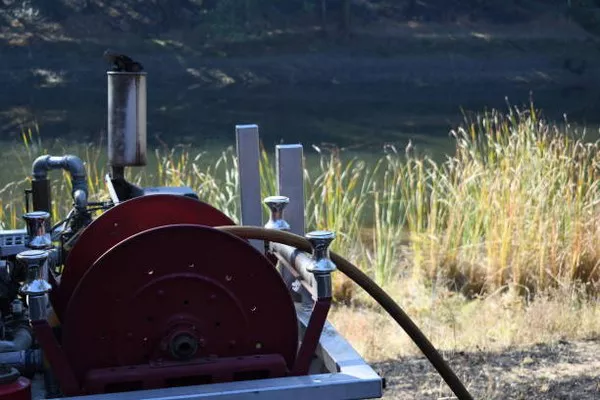Generators are invaluable in providing backup power during outages and in off-grid locations. However, understanding the fuel consumption of generators is crucial for budgeting and ensuring a reliable power supply. This article delves into the factors affecting generator fuel consumption, providing insights into how much gas it typically takes to run different types of generators.
Types of Generators and Their Fuel Requirements
Generators vary significantly in their fuel consumption based on their type, size, and efficiency. The primary types of generators include portable generators, standby generators, and inverter generators, each serving different purposes and consuming fuel at varying rates.
Portable Generators
Portable generators are commonly used for temporary power needs, such as during camping trips, tailgating, or short-term power outages. They are typically smaller and less powerful than standby generators. The fuel consumption of a portable generator depends on its wattage and load. For example, a 5,000-watt portable generator, running at 50% load, consumes approximately 0.75 gallons of gasoline per hour. This means if you run the generator for 24 hours, it would consume around 18 gallons of gas.
Standby Generators
Standby generators are designed for long-term power outages and are permanently installed outside homes or businesses. They automatically kick in during a power failure. These generators are generally more powerful and efficient than portable ones. A 20,000-watt (20 kW) standby generator running on natural gas at full load might consume around 2-3 gallons of fuel per hour. For gasoline, the consumption might be slightly higher. Over a 24-hour period, this generator would use about 48-72 gallons of fuel.
Inverter Generators
Inverter generators are known for their fuel efficiency and quieter operation. They are ideal for sensitive electronics due to their stable power output. A typical 2,000-watt inverter generator might use around 0.1 to 0.2 gallons of gasoline per hour at 25% load. Over 24 hours at this load, it would consume approximately 2.4 to 4.8 gallons of gas. These generators adjust their engine speed to match the power demand, which significantly reduces fuel consumption compared to traditional generators.
Factors Influencing Generator Fuel Consumption
Several factors influence how much gas a generator consumes, including load, generator efficiency, fuel type, and environmental conditions.
Load
The electrical load applied to the generator significantly impacts fuel consumption. Running a generator at full load consumes more fuel than running it at partial load. For instance, a generator operating at 50% load might consume half the fuel per hour compared to running at 100% load. However, this relationship is not always linear, as some generators are more efficient at certain loads.
Generator Efficiency
Efficiency varies across different generator models and brands. Modern generators are designed to be more fuel-efficient, incorporating technologies such as automatic throttle adjustment and advanced engine designs. Higher efficiency means lower fuel consumption for the same power output.
Fuel Type
The type of fuel used (gasoline, diesel, natural gas, or propane) also affects consumption rates. Diesel generators, for example, are typically more fuel-efficient than gasoline generators. Natural gas and propane are cleaner-burning fuels and may offer longer run times but can be less energy-dense compared to diesel.
Environmental Conditions
Operating conditions such as temperature, altitude, and humidity can impact a generator’s fuel efficiency. Generators tend to consume more fuel in extreme temperatures (both hot and cold) and at higher altitudes due to thinner air, which affects combustion efficiency.
Calculating Fuel Consumption
To estimate how much gas your generator will use, you can use the following formula:
Fuel Consumption (gallons/hour)=Generator Wattage×Load PercentageFuel Efficiency (Watt-hours per gallon)Fuel Consumption (gallons/hour)=Fuel Efficiency (Watt-hours per gallon)Generator Wattage×Load Percentage
For example, consider a 5,000-watt generator with a load of 2,500 watts (50% load) and a fuel efficiency of 10,000 watt-hours per gallon:
Fuel Consumption=5,000×0.510,000=0.25 gallons/hourFuel Consumption=10,0005,000×0.5=0.25 gallons/hour
Over 24 hours, this generator would consume:
0.25×24=6 gallons0.25×24=6 gallons
Practical Tips for Optimizing Fuel Use
To minimize fuel consumption and extend the runtime of your generator, consider the following tips:
Match the Generator to Your Needs: Choose a generator that fits your power requirements. Running a large generator at low load is less efficient than using a smaller, appropriately sized generator.
Regular Maintenance: Keep your generator well-maintained. Regular oil changes, air filter replacements, and spark plug inspections ensure efficient operation and optimal fuel consumption.
Load Management: Prioritize essential appliances and devices to reduce the overall load on the generator. Turn off non-essential items to decrease fuel use.
Use Stabilized Fuel: For gasoline generators, use fuel stabilizers to prevent the fuel from degrading, which can reduce efficiency and increase consumption.
Consider Alternative Fuels: If feasible, consider generators that run on diesel, natural gas, or propane, as they can be more efficient and cost-effective in the long run.
Invest in an Inverter Generator: If you require less power and want more efficiency, an inverter generator can provide the same power with less fuel consumption.
See also How Much Fuel Does A Generac Generator Use
Conclusion
Understanding the fuel consumption of your generator is essential for efficient operation and cost management. The amount of gas required to run a generator depends on several factors, including the type of generator, its load, and efficiency. By considering these factors and following best practices for fuel optimization, you can ensure that your generator runs effectively and economically, providing reliable power when you need it most.
Whether you are using a generator for emergency backup, recreational activities, or in off-grid locations, knowing how much fuel you need helps you prepare adequately and avoid unexpected power interruptions. With proper planning and maintenance, you can maximize your generator’s performance and fuel efficiency, ensuring a steady and reliable power supply.

